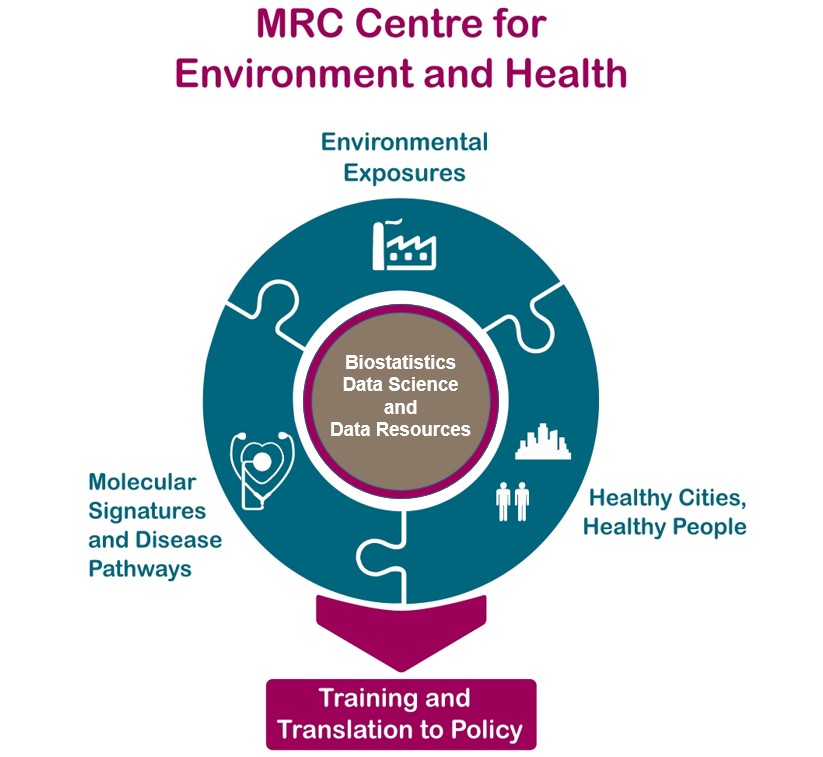Our Research
Research at the MRC Centre for Environment and Health focusses on the study of the health effects of ubiquitous environmental hazards of major public health and scientific importance, such as air pollution, noise pollution, non-ionising radiation and other agents.
The Centre forms a multi-disciplinary research cluster, covering a wide range of specialties, techniques and approaches. Its research uses exposure monitoring, advanced geographical information systems (GIS) and statistical modelling techniques, combined with experimental data, biomarker and mechanistic studies, and analyses of large population and occupational cohorts to explore environmental health problems of key public health and scientific importance.
The work of the Centre is divided into three major research programmes, reflecting our strengths and expertise. In addition, two core themes cut across these programmes, ensuring an integrated, cross-disciplinary approach to the Centre’s research.

